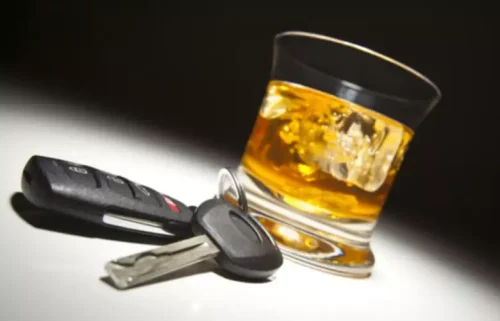
There’s a difference in safety between someone who is expressing anger verbally and one who has become physically aggressive. Anger expression may also be confused with aggression or hostility, two consequences of drinking commonly cited in research. Extreme emotions that are usually hidden from others, like anger and sadness, may be more noticeable when you drink because you’re less able to conceal and manage them. When they come out, others notice them because they’re not a part of the everyday social experience. It’s common for alcohol and anger to be stereotypically lumped together, but many people labeled “angry” while drinking may actually be experiencing aggression or hostility.
A Life of Healing and Renewal

Receive encouragement from people worldwide who know exactly what you’re going through! You’ll also have the opportunity to connect with our licensed Reframe coaches for more personalized guidance. Research has shown that thought suppression may contribute to alcohol-related aggression. One study supporting this finding enlisted 245 men with a history of heavy episodic alcohol use (Berke et al., 2020).
Identify Your Alcohol Withdrawal Phase
This interplay between nature and nurture is a recurring theme in why does alcohol make you angry the psychology of alcohol-induced aggression. Approximately 35 percent to 66 percent of violent crimes involve alcohol, ranging from murder and physical assaults to sexual violence and domestic abuse. Less severely, booze makes us a bit nastier than normal; our criticisms become more cutting, our anger feels more palpable, and our tolerance for frustration evaporates. We lash out when we’re drunk, and drunk people lash out at us in return. My colleagues and I have conducted several studies which support this idea. In these studies, male participants drank a dose of alcohol that placed them above the legal limit for driving a car – an average breath alcohol concentration of .09%.
Scientific Explanation for Increased Anger in Some Drinkers
Understanding this complexity is crucial for addressing alcohol-induced aggression effectively. Overall, Quigley likes the new study, but he says there are some limitations worthy of note. That’s a limitation to the study’s findings, he said, but it doesn’t invalidate them. He also said the reaction-time aggression test is a limited way of measuring aggression, as some researchers (himself included) question if participants are really intending to harm the other person in the game.

The Bigger Picture: Alcohol and Mental Health
Cognitive distortions play a significant role in alcohol-induced aggression as well. Alcohol impairs our ability to process information accurately, leading to misinterpretations of social cues and situations. A friendly pat on the back might be perceived as a threat, or a harmless joke could be taken as a personal insult. These misinterpretations can quickly escalate into confrontations, especially when combined with alcohol’s effects on impulse control. The term “mean drunk” refers to someone who becomes aggressive, hostile, or belligerent when under the influence of alcohol. It’s a phenomenon that’s all too common, with studies suggesting that alcohol is involved in up to 50% of violent crimes.
Health Conditions
Studies show that displays of anger are seen more often in men than in women and in people who already tend toward anger. Research also indicates that people who become angry after drinking cannot identify facial expressions correctly. Alcohol can provide a distraction from various negative emotions, including anger. The anger becomes displaced, directed toward someone who isn’t the original target.
Alcohol and aggression
If you or someone you love is battling aggression and alcohol misuse, help is available. Consult with a mental health professional and/or an addiction specialist who can provide resources and recommendations for treatment options. People who tend to ignore the future consequences of their behavior, or score low on the Consideration of Future Consequences (CFC) scale, have been found to display more aggression. This is heightened when consuming alcohol, according to a 2012 study.

Junk Food Is Filling Our Brains With Microplastics, Raising Mental Health Risks, Scientists Warn
Ultimately, Timmy would lead to the death of Paul’s girlfriend who drowned in a boating accident that Paul (in drunken Timmy mode) was responsible for. Be aware that alcohol-related aggression can have serious consequences, including legal issues and harm to your health. Statistics show that violence related to alcohol can lead to significant injuries and other issues.
- These genetic differences can influence how much someone is affected by alcohol – including whether they’re more likely to become aggressive after drinking.
- You can develop the first symptoms of alcohol withdrawal after just six hours of abstaining from drinking.
- When this narrowed focus targets a memory or experience that angers you, it can intensify your negative emotions.
- It’s easy to disregard tough emotions in the moment if you know you can “take the edge off” once you have a drink in your hand.
Proven Ways to Master Couples Communication: Expert Tips for Better Relationships
It’s important that you don’t try to detox on your own because some of the withdrawal symptoms from alcohol abuse can be dangerous and even fatal. Alcoholic rage syndrome is when a person becomes extremely angry and violent after drinking. It’s related to alcohol-induced anger because both are caused by the drug addiction treatment effects of alcohol on the brain.
- CBT helps individuals identify and change thought patterns and behaviors that contribute to aggressive behavior when drinking.
- Unfortunately, alcohol can hinder your brain’s ability to accurately identify threats, while also weakening its ability to suppress anger and other fight or flight responses.
- If you’re less worried about what others will think, or of any consequences, you could be more likely to have a strong reaction when something upsets you (2).
- When alcohol fuels aggression, it’s a tough situation for everyone involved.
- Conversely, if someone starts drinking in a jovial mood or high spirits, they may remain cheerful throughout – making them what we call ‘happy drunks’.
- In fact, it’s the relationship alcohol shares with the brain that often causes people to experience things like rage and irritability while drinking.
- Anger management and alcohol treatment programs must recognize and educate participants about the relationships between alcohol and anger.
…And make you feel “sexy”…
Others can be affected by alcohol-related violence too, including wider family and friends as well as children. Drinking alcohol can make us act in ways we wouldn’t normally, including being angry or aggressive. Ever wonder why some folks seem to get angrier when they’ve had a few?